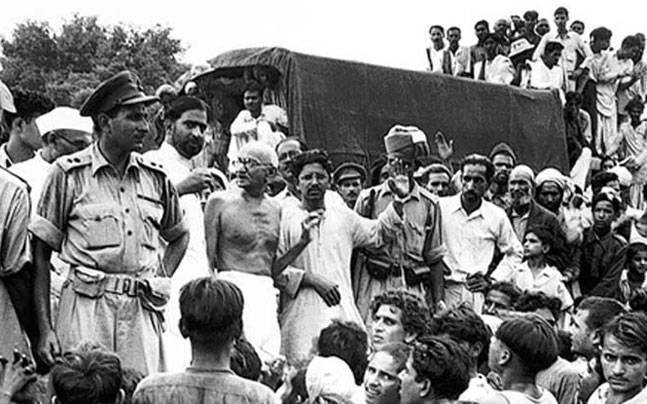NATIONALISM IN INDIA

Every Class and Group felt effects of colonisation differently and their experiences varied and notions of freedom for everyone was not the same for everyone always.
After 1919, National Movement in India spread through new areas and social groups. To understand that it is necessary to analyse the Impact of World War I on India as at that point of time Britishers ruled India and Britain participated in WWI:
- War created a new economic and political situation as the Defence Expenditure by the Britishers increased which resulted in the Increase in Taxes which further lead to increase in the price of the products that made it difficult for the people to buy them.
- Forced recruitment of the soldiers from the villages was done which created anger among the people.
- In the years 1918-1919 and 1920-1921 crops failed terribly in India which resulted in shortage of food and famines and epidemics were common.
IDEA OF SATYAGRAH:
Mahatma Gandhi introduced the idea of Satyagraha in India on his return from South Africa, he was inspired by the method of mass agitation used by the people to fight against the racist regime. Satyagraha focused on the power of truth and need to search of truth. He felt hat physical force was not necessary to fight the oppression. Therefore, the idea of Non – violence also emerged where oppressors were forced to see the truth instead of being forced to accept it.
He even organised the Satyagraha moments in Champaran – 1916, Ahemdabad – 1918 and Kheda -1917 successfully.
THE ROWLATT ACT 1919:
What is it: An act was passed through Imperial Legislative Council despite united opposition of Indian members as the act provided:
- Government the freedom to repress political activities and give detention to the political prisoners without any trial for 2 years.
Reaction of people: A non – violent civil disobedience against the act was started by Mahatma Gandhi on 6th April. Rallies, strikes or hartals were organised in various cities. British Government got alarmed at seeing such protest and unity among people.
Reaction of British administration; JALLIANWALA BAGH MASSACRE:
- Local leaders picked up from Amritsar and Mahatma Gandhi barred from entering Delhi.
- On 13th April when a large crowd gathered in Jallianwalla Bagh to attend annual Baisakhi fair and to protest against government new act General Dyer declared a Martial law and closed all the exits of the ground and opened fire on the crowds that killed hundreds of innocent people.
- This was done in order to create fear and terror in the minds of Indians so that they would never unite against any repressive measure taken by the Government.
- The news of the massacre spread and people attacked the government buildings and as a result they were forced to rub their noses on the ground, crawl on streets and made to salute Britishers.
- In addition to this, villages were bombed and the satyagrahis were brutally repressed.
NON – COOPERATION
Mahatma Gandhi realised to attain freedom it was important to unite Hindus and the Muslims and he saw this opportunity in the Khilafat issue.
KHILAFAT ISSUE: WWI ended with the defeat of the Ottoman Turkey and a harsh treaty was to be imposed on the Ottoman Emperor (who was the spiritual head of Islamic world also called Khalifa).
A committee was formed to defend his powers in Bombay in 1919 called Khilafat Committee. Its young Muslim leaders Muhammad Ali and Shaukat Ali when discussed this issue with Mahatma Gandhi he found this to be the base of unity among Hindus and Muslims.
September 1920 Calcutta session it was collectively decided by all the leaders that there is a need to start a non – cooperation movement in support of Khilafat & Swaraj.
BEGINNING OF MOVEMENT:
- Movement began to unfold in stages.
- Surrender of the titles awarded by the govt., boycott of civil services, army, police, courts.
- Conflict in Congress regarding boycott due to November 1920’s election as that would lead to more violence.
- However, at the Congress session at Nagpur in December 1920 a compromise worked and Non – Cooperation programme adopted.